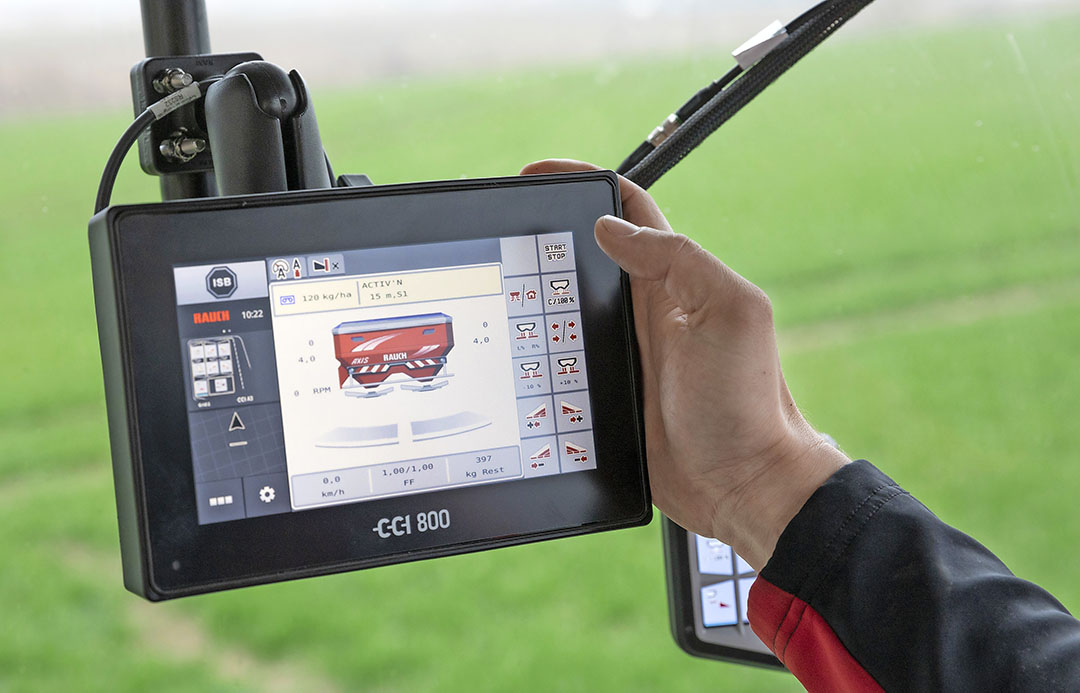ISOBUS is a communication standard for agricultural equipment that enables tractors, implements, controllers and other machines to interoperate with each other regardless of manufacturer. ISOBUS standardization has greatly improved the connectivity and integration of modern farming equipment. This article provides an overview of ISOBUS terminals – a key component that allows machinery from different brands to communicate with each other using the ISOBUS protocol
What is an ISOBUS Terminal?
An ISOBUS terminal, also known as an ISOBUS monitor, is an electronic device installed in agricultural vehicles to enable ISOBUS communication. ISOBUS terminals act as the interface between different machinery, allowing real-time exchange of control commands and implement/vehicle data across manufacturer boundaries. These terminals support the CAN bus based ISOBUS protocol for standard digital communication in agriculture.
Modern tractors are equipped with an ISOBUS Terminal mounted either on the driver’s cab or on an external bracket for easy access. The terminal has a touchscreen display to view implement information and send control commands. It serves as the central control hub through which a tractor can communicate with attached implements that also support ISOBUS. This facilitates Plug-and-Play operation of implements from different brands without any additional proprietary control systems or manual configuration.
Key Features of ISOBUS Terminals
ISOBUS terminals today come packed with many advanced features to enhance machine management and operation:
– Large high-definition color touchscreens ranging from 7 to 12 inches for clear visual feedback.
– Support for features like auto-guidance, variable rate application, section control etc. through third-party application software.
– Integrated GPS receivers for automatic vehicle/implement positioning and mapping.
– Multilingual interface and customizable Page and App settings.
– Implement auto-detection upon attachment for Plug-and-Play use.
– Central implement monitoring and control of functions like lifting, lowering, engaging etc.
– Diagnostics and error code reports for troubleshooting malfunctions.
– Data recording and reporting for as-applied maps, yield maps, operation logs etc.
– Wireless capability and cloud connectivity for remote vehicle/fleet management.
Compatibility with Various Implements
A key advantage of ISOBUS is its ability to operate diverse implements from different brands as a single virtual device. ISOBUS terminals are compatible with popular implement types:
– Sprayers: Automatically detect nozzles, sections, tanks to enable variable rate, pulse width modulation controls from cab.
– Seed drills: Section-wise singulation and variable rate seeding controls through the terminal interface.
– Combines: Grain loss, yield and moisture monitoring along with settings for unloading, cleaning fan speed etc.
– Forage harvesters: Crop and unload monitoring integrated with controls for cutting height, rotor speed.
– Tillage equipment: Section/depth controls along with automatic implement detection for different types.
By providing a uniform communication protocol, ISOBUS terminals ensure that implements work seamlessly with any ISOBUS compliant tractor regardless of respective manufacturers. This interoperability is a major boost to fleet management flexibility and used equipment resale value.
Advanced Terminals for Future Farming
Manufacturers are continuously enhancing ISOBUS terminal capabilities to meet transforming technology and process needs. Some upcoming trends include:
– Larger display sizes up to 15 inches for clearer visualization of complex tasks like zoning.
– Integrated multitouch functionality and pen input for efficient map editing.
– More powerful processors and wider compatibility for advanced farming systems involving robotics, computer vision, machine learning etc.
– Integration of augmented reality/virtual reality for new age guidance, telemetry and training applications.
– Cloud-based fleet management software commercially available on terminals to enable remote monitoring, updates and support.
– Low-cost variants for smaller implements/machinery to facilitate technology access across all farm sizes.




